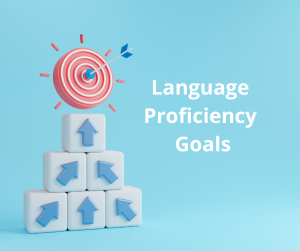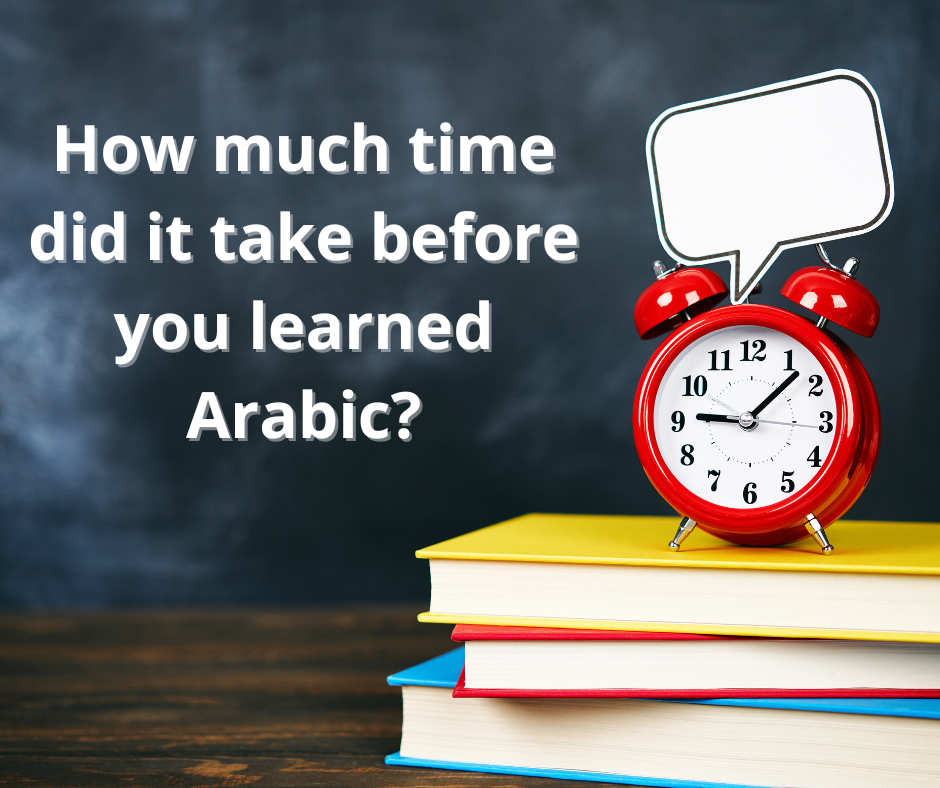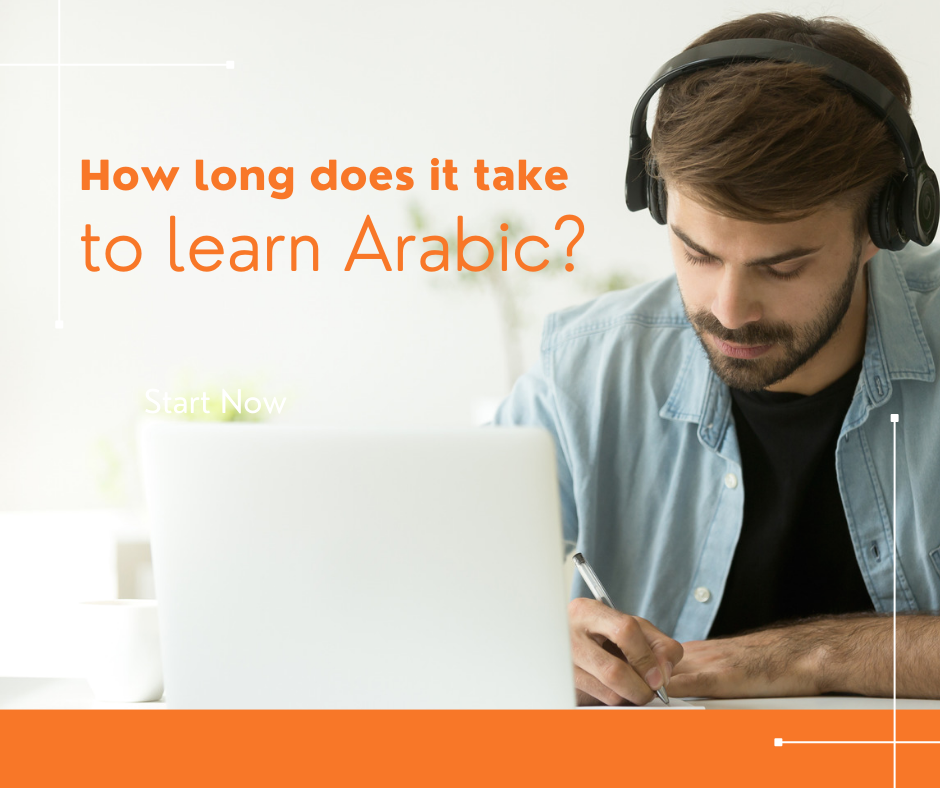Learning Arabic is a journey filled with challenges, triumphs, and moments of discovery. Whether you’re just starting or already on your way, the question of how long it takes to learn Arabic is one that often weighs on the minds of aspiring learners. In this article, we’ll delve into the factors that influence the time it takes to master Arabic and share insights from learners who’ve embarked on this linguistic adventure.
The Variable Nature of Language Learning
Learning a language is not a one-size-fits-all journey; it varies greatly from person to person. Factors such as prior language experience, study intensity, motivation, and learning environment all play significant roles in determining how long it takes to learn Arabic.

Prior Language Experience
Individuals with prior experience learning languages, especially those with similarities to Arabic, may find it easier to grasp Arabic concepts and structures. Familiarity with grammatical concepts and language learning strategies can expedite the Arabic learning process.
Intensity of Study
The amount of time and effort devoted to studying Arabic directly impacts learning speed. Intensive study programs or daily immersion experiences can accelerate language acquisition, while sporadic or infrequent study habits may prolong the learning process.
Motivation and Commitment
Motivation and commitment are key drivers of language learning success. Learners who are passionate about Arabic language and culture, set clear goals, and maintain consistency in their study habits are more likely to progress quickly and effectively.
Learning Environment
The learning environment significantly influences language learning outcomes. Immersive environments where Arabic is spoken regularly provide ample opportunities for practice and reinforcement, whereas limited exposure to Arabic-speaking contexts may slow progress.
Resources and Learning Methods
The choice of learning resources and methods can impact learning efficiency. Utilizing a combination of textbooks, online courses, language learning apps, and immersive experiences tailored to individual learning styles can enhance comprehension and retention.

Language Proficiency Goals
The desired level of language proficiency also influences Learning Arabic duration. Basic conversational fluency may be achievable within a few months of dedicated study, while achieving advanced proficiency or mastery of Arabic may require several years of sustained effort.
Individual Learning Pace
Every learner has a unique learning pace influenced by factors such as cognitive abilities, aptitude for language learning, and personal preferences. Some individuals may progress rapidly through Arabic proficiency levels, while others may require more time and practice to achieve similar milestones.
Real-Life Application of Skills
Regular practice and application of Arabic language skills in real-life situations, such as conversations with native speakers, reading authentic texts, and watching Arabic media, reinforce learning and accelerate language acquisition.
Conclusion
In conclusion, the time it takes to learn Arabic varies widely depending on individual factors and circumstances. While some learners may achieve fluency in a relatively short period, others may require more time and effort to reach their language learning goals. Regardless of the timeline, the journey of learning Arabic is a rewarding experience filled with opportunities for personal growth, cultural enrichment, and global communication.




